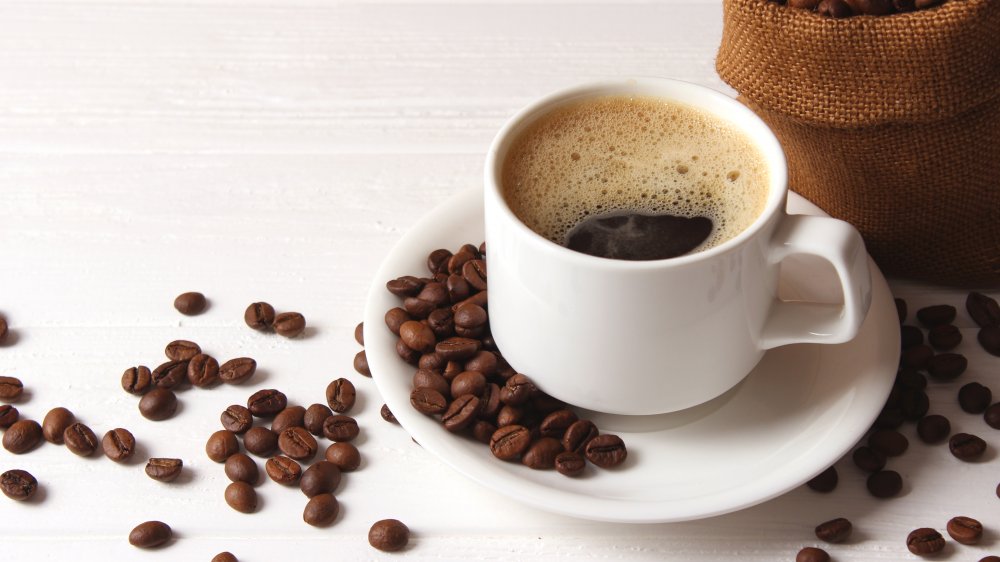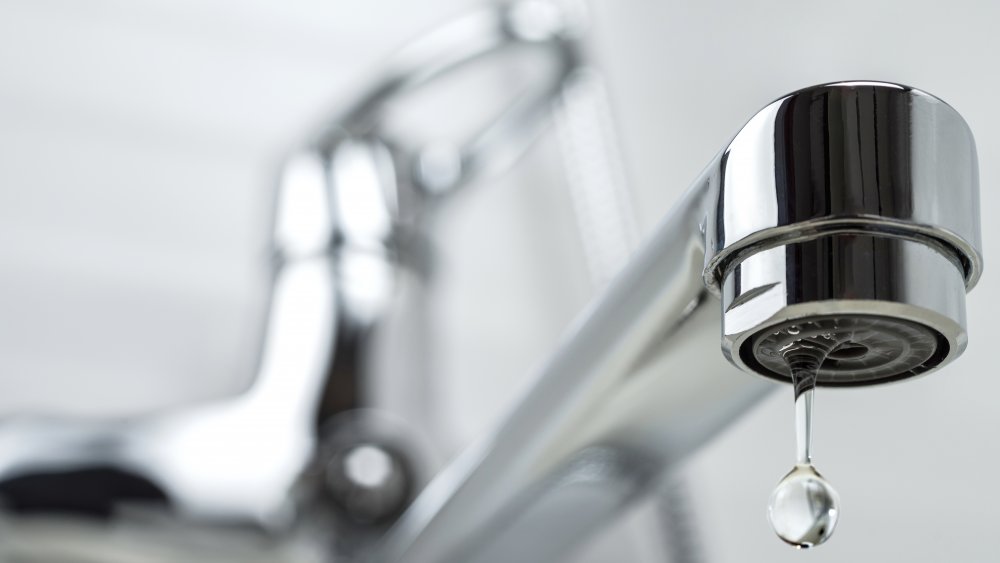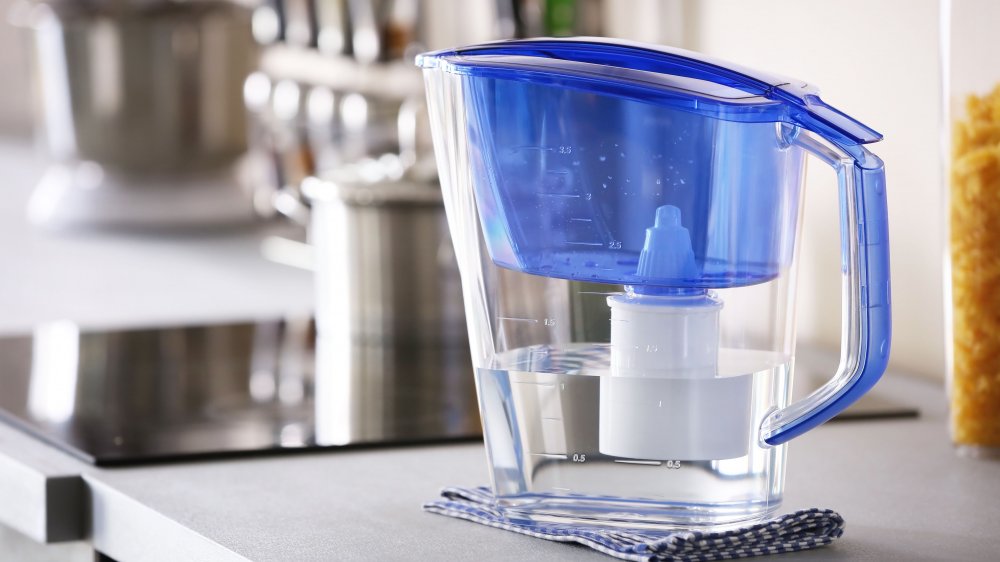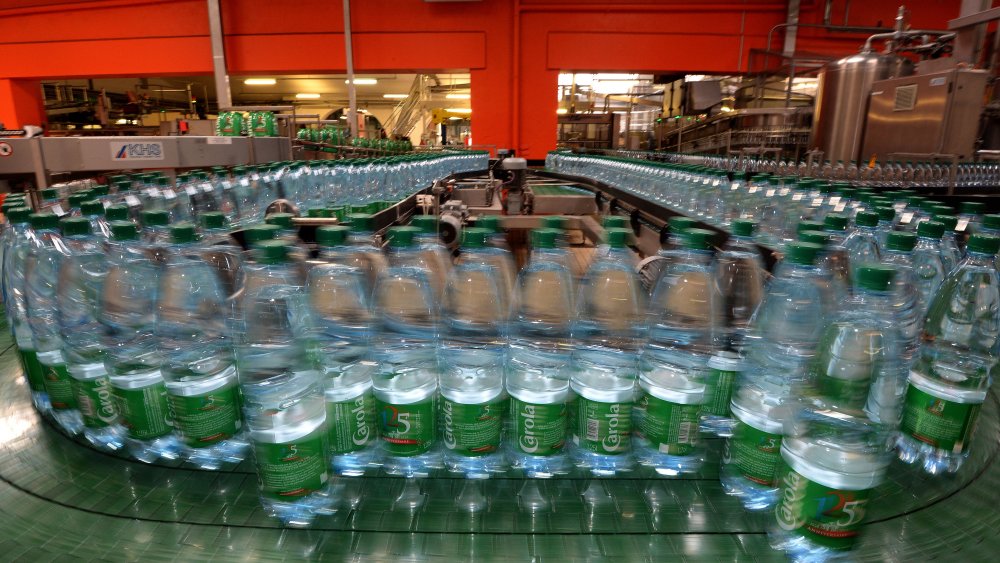You Should Never Brew Coffee With Tap Water. Here's Why
While some people are quite finicky about how their morning coffee is prepared, others are less demanding. However, even if you don't consider yourself to be a coffee connoisseur, you might consider not using tap water to make your morning cup. Considering the fact that coffee is 98 percent water, it stands to reason that the type of water you use to brew your java will have a large impact on the overall taste of the finished product (via Craft Coffee Guru).
If you live in the western region of the United States, tap water often comes from brackish groundwater, which can result in a salty taste. This can, of course, carry over to your coffee, if you are using tap water to brew it. In Florida, where the tap water is notorious for smelling like rotten eggs, the tap water can impart a sulfur-like taste to your coffee that you probably don't want to taste first thing in the morning (via Florida Health).
More pitfalls of using tap water to brew coffee
If you live in a place where the water is hard (i.e., there are a lot of minerals like calcium and magnesium, which can naturally occur in the water), the minerals will begin to collect on your coffee pot. You may begin to notice a white or gray deposit that will be especially noticeable if your coffee maker is a dark color. You can clean the buildup by descaling (which is basically cleaning) your coffee maker, but that's an additional step which you can avoid by not using tap water to brew your morning Joe in the first place (via The Kitchn).
On top of all the aforementioned reasons tap water is not ideal for brewing coffee, there can be impurities in your tap water. If you come from the northeast or the midwest, you may have high levels of phosphate in your water, and if you come from an area known for agriculture, water can be affected be nitrate runoff due to fertilizer use.
Filters make tap water an option for making coffee
If you're keen on enjoying your morning java at home, there's really no reason why you shouldn't be thinking about tweaking the water that you've got flowing out of your tap in order to make it more coffee-friendly. After all, if you had to rely on bottled water (which can be pricey), you may as well dash off to the nearest Starbucks for your fix, which really defeats the purpose.
One of the easiest ways to turn your tap water into the ideal mate for your coffee beans is to invest in a water filter — either one that comes with a pitcher, or one which mounts to your faucet. Pitcher filters do a great job of removing impurities, odors, and chemicals including chlorine or chloramine (if they are in your water, that is). The upside to using these filters is that they are cheap and cheerful, but the downside is that they don't purify more than about a gallon of water each time, so you may want to invest in the faucet-mounted filter instead (via Manual Coffee Brewing). A filter might even make your non-coffee water taste better.
Not all bottled water can be used to brew a good cup of coffee
But if you've done tests on the quality of your tap water and have decided that bottled water really is the only way to go for your coffee, there are a few things you need to remember. Different brands can vary in both mineral content and pH balance, which means not all bottled waters are suitable for making a good cup of coffee.
Your beans are at their best when they are brewed with water that has added magnesium, which enhances the flavor of your morning brew because it sticks to the compounds that give coffee its flavor. Using water that is high in calcium may leave your coffee cup tasting more bitter. And if you're determined to use bottled water and only have distilled water as an option, this may be time to look out for water additives that have been designed to up the ante on the coffee brewing process.



